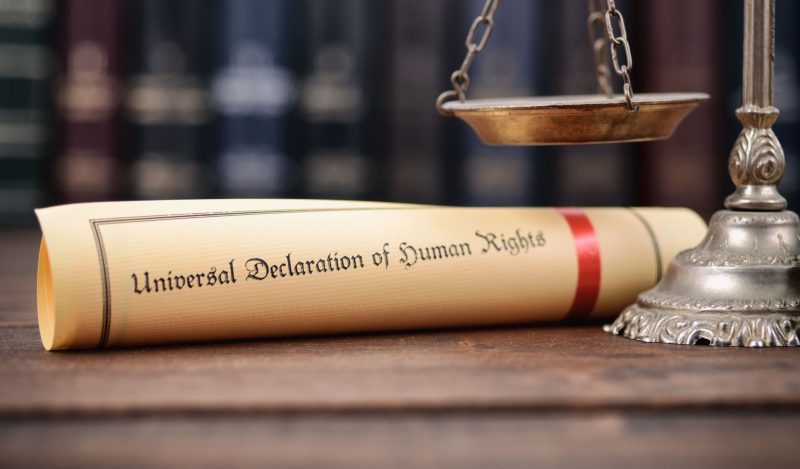Years after the Covid-19 vaccine mandates were imposed, I find myself in a reflective state, grappling with the seismic shifts that occurred during that time. The world we knew changed dramatically, almost overnight. Governments enacted sweeping mandates, and freedoms many of us took for granted suddenly became privileges. It was a time filled with fear, confusion, and pressure. Now, with the benefit of hindsight, the weight of what transpired feels even heavier.
I’ve come to realize that we lived through one of the most staggering human rights violations in recent history. At the heart of this crisis lies the crossing of two fundamental Rubicons: the erosion of the First Amendment to the United States Constitution and the violation of the Nuremberg Code. Both were created in the wake of historical tragedies—one after the American Revolution, the other after World War II. Both are foundational, designed to safeguard human rights and protect against abuses of power. By transgressing these boundaries, we’ve entered dangerous territory that demands urgent reflection and action.
The First Rules: Cornerstones of Freedom and Ethics
The First Amendment’s guarantee of free speech is a cornerstone of democracy, born from the crucible of revolution against tyranny. Our Founders, having experienced firsthand the oppression of a government that stifled dissent, enshrined this right to protect the free flow of information, allowing people to hear all sides of an issue and make their own informed decisions. During the pandemic, however, we crossed this sacred line. Censorship prevailed, and alternative perspectives on the vaccines, including legitimate concerns about their safety and long-term effects, were suppressed. Mainstream media, social media platforms, and governments echoed a singular message: “safe and effective.” Dissenting voices were labeled as misinformation and silenced, betraying the very principle that was meant to prevent such abuses of power.
Equally important is the Nuremberg Code, established after the horrors of World War II, which was meant to be an unbreakable international standard. Its first and most critical rule states: “The voluntary consent of the human subject is absolutely essential.” This principle is so fundamental that people were executed after the Nuremberg Trials for violating it. Yet, during the pandemic, we crossed this line as well.
People were coerced into receiving vaccines under threat of exclusion from public life. We were told that we would lose our jobs or be denied access to various aspects of society if we refused the shot. Healthy children were shut out of public spaces entirely simply because their parents didn’t want to give them an experimental medicine. Families faced impossible choices under immense social and economic pressure—a direct violation of the Nuremberg Code’s demand that all medical interventions be voluntary and free from coercion.
The Erosion of Rights and Trust
The violation of these two fundamental principles created an environment of coercion and misinformation. People were not just forced into medical interventions; they were coerced into silence. Any attempt to question the official narrative or to demand more information was met with censorship and exclusion. This erosion of rights had far-reaching consequences:
- Lack of Informed Consent: Without full transparency about vaccine ingredients and potential long-term risks, true informed consent was impossible. People were asked to make life-altering decisions without crucial information.
- Suppression of Debate: The censorship of alternative viewpoints undermined the possibility of informed consent. Without open debate and access to diverse perspectives, how could anyone claim the public had made a truly informed choice?
- Violation of Bodily Autonomy: Frontline workers—once hailed as heroes—were discarded when they chose not to comply with mandates. Many already had natural immunity from previous infections, yet their personal medical decisions were not respected.
- Illogical Public Health Policy: It became clear that the vaccines did not stop transmission of Covid-19, which was the central justification for the mandates. If the vaccines couldn’t prevent spread, vaccination became a personal health decision, much like deciding what to eat or drink. Yet, people were still forced to comply under severe threats.
- Personal Impact: The mandates changed the entire course of my life and many others’. Relationships frayed, work situations were compromised, and geographical trajectories shifted as people sought environments aligned with their values.
A Crisis of Human Rights and Institutional Trust
The absence of a public reckoning for these violations is striking. How did we live through such blatant disregard for human rights without any meaningful acknowledgment or accountability? The First Amendment was enshrined to protect free speech, and the Nuremberg Code was created to prevent these kinds of abuses. Yet, both of these critical protections were violated on a massive scale.
This combination—the loss of free speech and the abandonment of informed consent—has created a crisis of trust that may take generations to heal. How can we trust governments, media, or even medical establishments when they suppress information and coerce us into compliance without providing all the facts?
The Forgotten Lessons of History
What’s perhaps most astonishing is how few people seemed to know the full implications of the First Amendment or were even aware of the existence of the Nuremberg Code. How did we get here? Perhaps it’s because the elders who lived through the aftermath of World War II—the people who understood the lessons of history—have passed on. The echoes of historical tragedies were all too eerie: the same tactics of misinformation, fear, and government overreach manipulated public sentiment, turning empathy into weaponized fear.
Throughout history, when humanity has faced its darkest hours, we’ve emerged with new wisdom and safeguards. The American Revolution gave birth to the Constitution and its Bill of Rights. The atrocities of World War II led to the Nuremberg Code and the Universal Declaration of Human Rights. These documents represent humanity’s best efforts to learn from our mistakes and prevent future abuses. Now, having violated these sacred principles, we find ourselves at another crucial juncture. It’s time to reflect on our actions, acknowledge our missteps, and forge new protections for the future.
The Dangers of Silence and the Path Forward
Without a public reckoning, we are treading dangerous ground. If there is no acknowledgment of these violations, no collective reflection, then we are giving a green light for this to happen again. The lack of accountability sends a clear message: there is no line that cannot be crossed, no principle that cannot be ignored, and no abuse of power that will not be tolerated.
As we move forward, it’s crucial that we remember this chapter in our history, not to dwell in the past, but to ensure that we never repeat these mistakes. We must reaffirm our commitment to human rights, informed consent, and free speech. Only by acknowledging what happened and holding those responsible accountable can we hope to build a future where such violations are unthinkable.
A Path Forward: Protecting Our Foundational Rights
As we emerge from the shadow of the Covid-19 vaccine mandates, we find ourselves at a crucial juncture. The events of the past few years have revealed the fragility of our most cherished freedoms and the ease with which the principles enshrined in the First Amendment and the Nuremberg Code can be eroded. Yet, this challenging period has also awakened a renewed appreciation for these fundamental rights. Now, we must channel this awareness into action, working tirelessly to prevent future violations and to heal the deep wounds inflicted upon our society.
Our path forward begins with holding our government accountable. We must advocate for the creation of a bipartisan commission to investigate the handling of the pandemic, focusing particularly on potential violations of free speech and informed consent. This commission should serve not as a witch hunt, but as a means of understanding our missteps and ensuring that they are never repeated. Simultaneously, we need to push for legislation that strengthens protections for whistleblowers and dissenters, especially in times of crisis. Our democracy thrives on the free exchange of ideas, and we must ensure that diverse viewpoints can always be safely expressed, even in the face of overwhelming pressure to conform.
Legal and policy safeguards must be bolstered to protect our rights in future crises. We should support legal efforts that challenge and clarify the limits of government power during public health emergencies. Moreover, we must advocate for legislation that explicitly requires all public health measures to adhere to the principles of the Nuremberg Code, especially regarding informed consent. By integrating ethics committees at all levels of government, we can help ensure that decision-making aligns with fundamental human rights, even in the most challenging circumstances.
Education plays a crucial role in safeguarding our freedoms. We must promote the inclusion of comprehensive civics education in school curricula, with a particular focus on the First Amendment and medical ethics. By fostering a deep understanding of these principles in the next generation, we create a populace better equipped to recognize and resist encroachments on their liberties. Public awareness campaigns about the importance of free speech and informed consent in maintaining a free society should be supported and amplified.
Perhaps the most challenging, yet vital, task before us is healing the personal relationships strained by the events of the past few years. To bridge the divides created during this challenging period, we must approach our fractured relationships with both compassion and clarity. Initiating calm, rational discussions with estranged family members or friends can create a space for open dialogue. By practicing active listening and expressing empathy, we can strive to understand the fears and motivations behind others’ decisions, even if we disagree with them. Seeking common ground in shared values and experiences, while also establishing boundaries for future interactions, can prevent reopening old wounds.
Recommitting to Our Principles
As we work towards reconciliation, we should consider the path of forgiveness, recognizing that many acted out of fear or confusion. However, in forgiving, we must not forget. Maintaining a clear memory of the events that transpired will serve as a guide to prevent future violations of our rights and freedoms.
Our path forward demands more than mere reflection; it requires a process of reconciliation and a steadfast recommitment to our foundational principles. Only through unwavering dedication to free speech, informed consent, and individual autonomy can we hope to rebuild the trust that has been fractured. The stakes couldn’t be higher—our actions today, including how we reconcile with this challenging chapter in our history, will determine whether we bequeath to future generations a society that cherishes freedom or one that casually discards hard-won liberties.
As we move forward, let us carry this awareness with us, remaining ever-vigilant in the defense of our rights while extending compassion to those around us. Our commitment to these principles, coupled with our efforts to heal our communities, will shape the society we leave for future generations – one that values both individual liberty and collective well-being, fostering a balance that respects the dignity and rights of every person.
The choice is ours, and the time to act is now. Through thoughtful action, genuine efforts to understand and reconnect with one another, and an unwavering commitment to our fundamental rights, we can emerge from this challenging period with our liberties strengthened and our communities renewed. Let this be our legacy—a society that learned from its missteps, healed its divisions, and recommitted itself to the timeless principles of freedom and human dignity. By doing so, we honor the wisdom of those who came before us, creating safeguards after periods of great strife, and we set a powerful example for future generations to follow.
Join the conversation:


Published under a Creative Commons Attribution 4.0 International License
For reprints, please set the canonical link back to the original Brownstone Institute Article and Author.









